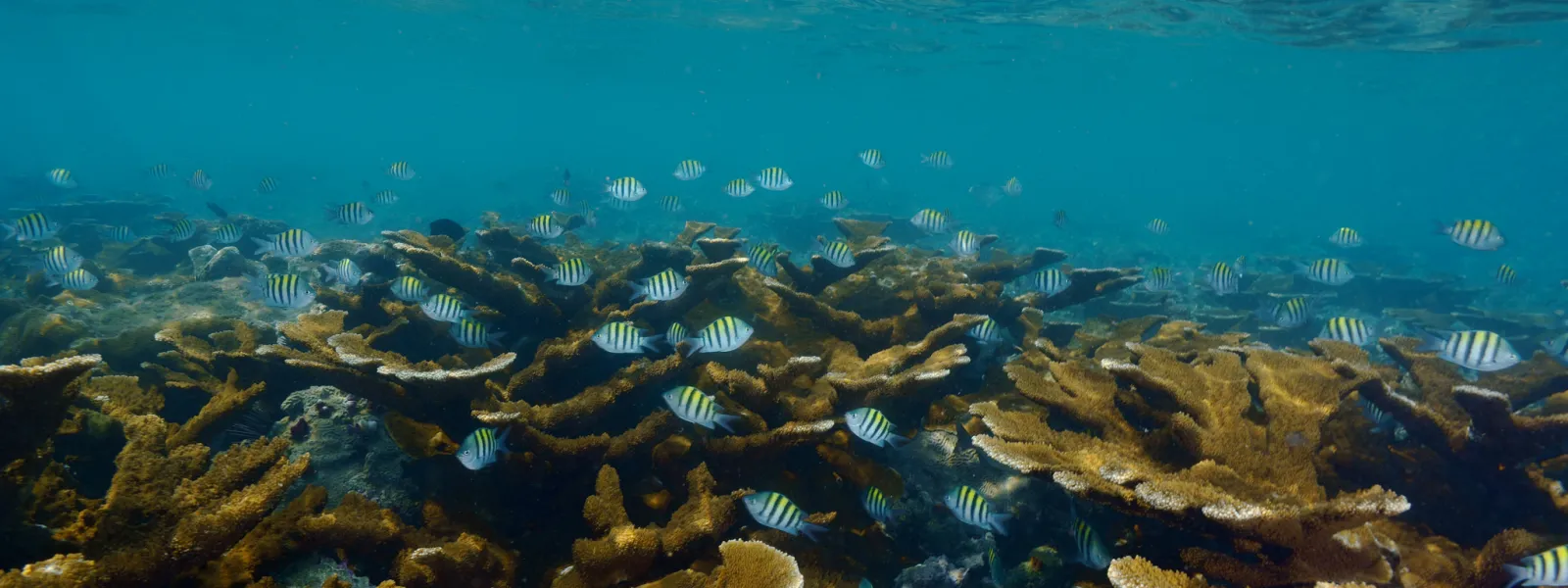
Project
Photo: Manuel VictoriaDefending the Veracruz Reef from a port expansion project
In the Gulf of Mexico, 27 coral reefs form a submarine mountain range running for miles between six islands. Hundreds of colorful fish species, sea urchins, starfish, and sea grasses share the reef with an abundance of other life forms. Fishing, sport diving, and beach tourism thrive along the coast. This is the magnificent Veracruz Reef, the largest coral ecosystem in the Gulf.
In 1992, Mexico’s government declared the Veracruz Reef System a Natural Protected Area. In 2004, it was listed as a Wetland of International Importance under the Ramsar Convention, a treaty for the protection of wetlands including reefs.
Despite the reef’s recognized significance, in 2013 the government reduced the size of the Natural Protected Area and approved a port expansion project. Local communities and organizations challenged the project's environmental permits, demanding protection of the right to a healthy environment.
On February 9, 2022, the Supreme Court of Justice of the Nation unanimously decided that the authorities violated the right to a healthy environment of Veracruz residents by authorizing the port expansion based on a fragmented environmental impact assessment. This means that the permits for the project are non-existent and that the impacts of the project on the health of the reefs must be studied again, this time in a comprehensive manner, and even the viability of the project.
The ruling is a historic precedent not only in Mexico, but for the entire region, as it allows access to environmental justice for the people neighboring an ecosystem affected by a project.
Partners:
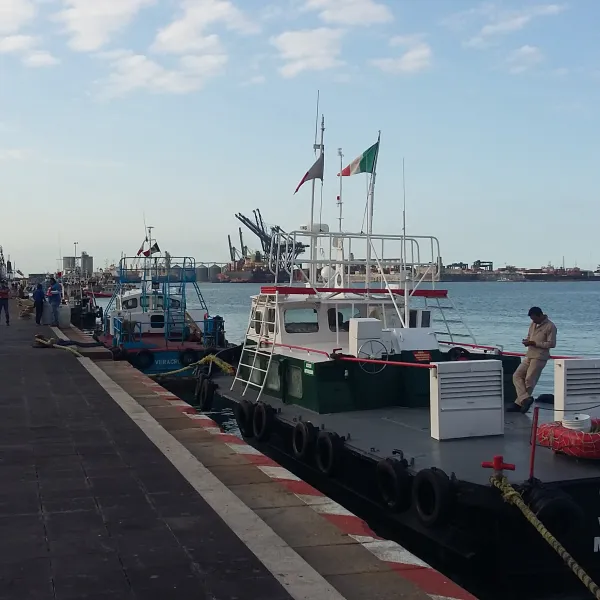
Related projects
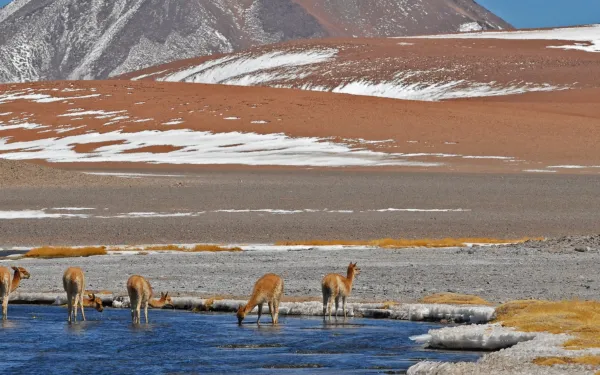
Circular economy: what is it and what role does it play regarding the climate crisis and energy transition?
Life on the planet, including our own, depends on nature.To create more sustainable ways of life and keep global warming under control, we need to ensure healthy, resilient, and productive ecosystems.The climate crisis, as well as the pollution and biodiversity loss crises, stem from human activities that exploit nature beyond its limits, without giving it a chance to recover, degrading ecosystems and pushing them to points of “no return.”These activities are based on the conventional economic model, which is linear and follows the logic of extracting, producing, using, and discarding resources.A more sustainable use of natural resources requires a different economic model.One option among many is the circular economy, an economic model of production and consumption traditionally described as a combination of reduction, reuse, and recycling activities.However, most current approaches to the circular economy, incorporated into various public policies, focus on extending the life cycle of products that have already been manufactured. They do not comprehensively incorporate the processes of extracting the materials needed to manufacture the products or their final disposal. This considerably reduces the protection of nature and territories during the economic cycle.That is why it is important to understand what the circular economy is and what it should include, in theory and in practice, so that it can truly contribute to a more sustainable and fair world. Circular economy: Definition and challengesAs an alternative to the linear economic system, the circular economy involves closing the economic cycle through various mechanisms. These include reducing the use of virgin natural resources, increasing the use of recycled materials, and minimizing waste through the repair and reuse of products, keeping them in circulation for as long as possible.It also means creating additional value for products whose useful life has ended when their materials are used again and again. In the face of our continued and unsustainable use of resources, the concept of the circular economy is becoming increasingly prevalent in different areas.Although it is a living and evolving concept, when it becomes public policy, most definitions of the circular economy consider its main objective to be economic prosperity, with environmental care as a secondary result.In 2020, a legal definition of the circular economy in the European Union considered it to be “aneconomic system whereby the value of products, materials and other resources in the economy is maintained for as long as possible, enhancing their efficient use in production and consumption, thereby reducing the environmental impact of their use, minimising waste and the release of hazardous substances at all stages of their life cycle” …This and other definitions show that the positive effects of the circular economy on nature tend to be taken for granted, when certain theories or practices associated with the concept may actually hinder the protection of ecosystems and the people who depend on them.This is happening with the type of circular economy promoted to make extractive processes linked to the energy transition, designed to address the climate crisis, environmentally friendly. Circular economy and energy transitionHistorically, extractive activities such as mining have degraded ecosystems and violated human rights in Latin America, creating so-called “sacrifice zones.”Today, to address the climate crisis, several international organizations have positioned an energy transition that requires doubling the production of renewable energies and electromobility to decarbonize the global energy matrix.This also implies intensifying the extraction of so-called "critical" minerals for the development of clean technologies. One of these is lithium, a mineral of which the region has large reserves.Thus, far from putting an end to it, the energy transition promoted by the Global North is renewing the historical extractivist trend, generating great pressure on Latin American territories rich in minerals for the transition, affecting ecosystems and populations near extraction areas.In this context, the circular economy is promoted as a tool to make mining an environmentally responsible process. However, international proposals in this regard do not guarantee the resilience of ecosystems or the well-being of communities.This is evident in countries such as Argentina, Bolivia, and Chile due to the growing global demand for minerals such as lithium.Currently, the circular economy applied to mining in Latin America focuses on the internal processes of mining companies, but not on the consequences that their interactions with ecosystems and communities generate in the extraction territories, without stopping the expansion of extractivism or the high socio-environmental impacts caused.Obtaining lithium for electromobility, for example, involves a complex, transnational supply chain. This includes mineral extraction, refining, the production of electrodes for batteries, battery manufacturing, and finally, the manufacture of electric vehicles.From a global northern perspective, the circular economy is mainly applied here to battery recycling and industrial improvements for mining. However, it does not include measures to protect the biophysical limits and resilience of the ecosystems where lithium is extracted, ensure environmental restoration, prevent damage to local economies, guarantee human rights, and repair those that have already been violated. Proposals from Latin America for a just circular economyTo ensure that the energy transition does not become a new extractive process that generates the same conflicts and environmental impacts that it has systematically caused and that are precursors to the current climate crisis, it is essential that the circular economy comprehensively integrates the mineral extraction territories.Circular economy schemes must avoid the creation, expansion, and/or deepening of “sacrifice zones.” They must also recognize the strategic value of ecosystems as natural capital for countries and communities, given the ecosystem functions they provide, including freshwater supply and carbon capture.To move towards a just circular economy in the extraction territories, the following principles must be respected:Protection of the human rights of local populations, guaranteeing their permanence in the territory and the continuity of their economic activities, linked to their livelihoods and their relationship with ecosystems.Promotion of environmental balance in accordance with the biophysical limits of ecosystems, recognizing their intrinsic values, which favor the conservation of their functions.Internalization of environmental costs in mineral value chains, incorporating the value of ecosystem services used for extraction into prices.Learn more in our policy brief Reimagining the circular economy from the extraction territories. Proposals from Latin America.
Read more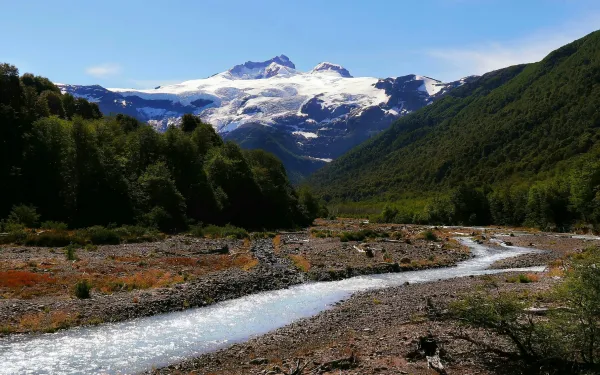
Mapuche defend against extractive industry and forced evictions from ancestral lands in Argentina
Mapuche communities urge Inter-American Commission on Human Rights to further investigate abuses at nexus of extractive industry and land dispossession.Río Negro, Neuquén, Mendoza, Argentina - Organizations of the Indigenous Mapuche People addressed the urgent situation arising from conflicts with extractive projects on Indigenous land in Argentina in a public hearing before the Inter-American Commission on Human Rights today. The human rights body of the Organization of American States heard testimony of those impacted by mining, oil, and gas projects that have been compounded by the lack of territorial recognition, ongoing evictions, and the criminalization of indigenous communities."The rapid expansion of extractive projects across ancestral Mapuche territories in Argentina is driving the eviction of our communities as projects proceed without their free, prior, and informed consent," emphasized Mirta Ñancunao y Hugo Aranea, werken (spokespeople) of the Mapuche-Tehuelche Parliament of Río Negro. This includes new mining projects across 1,800 square kilometers in Malargüe, oil and gas developments stretching 600 kilometers along the Vaca Muerta shale formation in Neuquén, and at least 53 new mining and energy projects in Río Negro, particularly in the Calcatreu open-pit gold and silver mining project, which threatens nearby water sources."The exploitation of natural resources has been accompanied by the intention to vacate traditional territories," said Lorena Bravo of the Mapuche Federation of Neuquen, Xaunko Regional Council. "The evictions have direct consequences including preventing the use of and access to land, sacred sites, impacts to health, access to water, impacting indigenous economies and traditional practices."Gabriel Jofré, werken of the Malalweche Organization, asserted that the "advance of extractive companies into the traditional territory of Mapuche communities is predicated on the lack of effective state recognition of Mapuche communities." He emphasized that the state has dismantled the processes used by Mapuche communities to assert their territorial rights, including the recognition of their legal status. Jofré also noted that the national government rolled back protections in Law 26.160, which had suspended evictions of recognized indigenous communities."The advance of land extraction is not possible without installing a racist and discriminatory discourse," which Jofre maintains endangers human rights and environmental defenders. Both national and provincial politicians have fueled racist and hateful discourses against Mapuche communities, labeling them "terrorists" and denying their Indigenous identities. This rhetoric has further stigmatized Indigenous defenders and increased the risks they face for engaging in rights advocacy.The communities urged the Commission to further investigate human rights violations occurring at the intersection of extractive industry expansion and the dispossession of Mapuche communities from their ancestral lands. In December 2024, the Commission issued a public statement calling on Argentina to respect the land rights of Indigenous Peoples.Organizations participating in the hearing included the Malalweche Organization from Mendoza, The Mapuche Confederation of Neuquén, and the Coordination of Mapuche Parlement of Río Negro, with support from the Observatory on the Human Rights of Indigenous Peoples, and the Interamerican Association for Environmental Defense. Earthjustice has partnered with the Malalweche Organization in defending territorial rights of the Mapuche people since 2022.Entre las organizaciones que participaron en la audiencia se encuentran la Organización Malalweche de Mendoza, la Confederación Mapuche de Neuquén y la Coordinadora del Parlamento Mapuche de Río Negro, con el apoyo del Observatorio de Derechos Humanos de Pueblos Indígenas, la Asamblea Permanente por los Derechos Humanos (APDH), la Asociación Interamericana para la Defensa del Ambiente (AIDA) y Earthjustice.Press contactVíctor Quintanilla (Mexico), AIDA, [email protected], +52 5570522107
Read more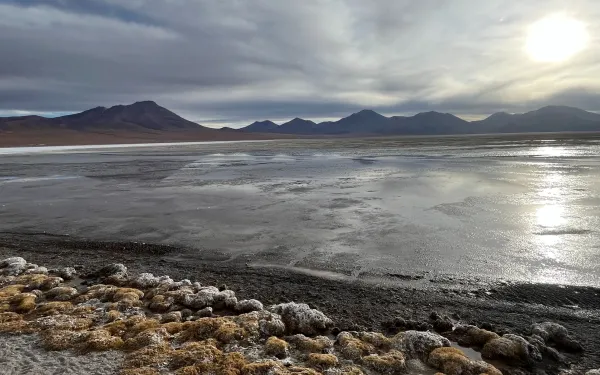
Human rights and the rights of nature in the governance of minerals for the energy transition
A reading of Advisory Opinion 32 of the Inter-American Court of Human Rights by the Andean Wetlands Alliance The Inter-American Court of Human Rights (IACHR) outlined in its Advisory Opinion No. 32 (OC-32), released on July 3, 2025, how human rights must be upheld in the face of the climate emergency. The Court also recognized the rights of nature and the responsibilities of States and companies regarding climate change. This advisory opinion followed more than 150 oral interventions and over 260 written submissions—including those from organizations that are part of the Andean Wetlands Alliance.This pronouncement sets a course for protecting valuable ecosystems and the rights of people in Latin America, a region deeply affected due to its significant reserves of minerals increasingly in demand for the global energy transition.Human rights and "critical" mineralsThe IACHR, a central institution in setting human rights standards for Latin America and the Caribbean, provided through OC-32 a set of tools for moving toward policies grounded in equity and justice. These tools align with the principles put forward by the UN Secretary-General in relation to the minerals value chain for the energy transition.Minerals such as lithium and copper are at the heart of current energy transformation policies due to their value for battery manufacturing. This value chain begins in territories such as the high Andean wetlands of Argentina, Bolivia, and Chile, with the exploration and extraction of mineral deposits. It continues with their processing and refining in specialized facilities for the production of cells, which are later integrated into batteries that power a range of devices—mainly individual electric vehicles.The Court placed special emphasis on the protection of human rights during the extraction of so-called “rare or critical” minerals for the energy transition, which make up the first links in this value chain. This directly reflects Principle 1 of the 2024 Report of the UN Secretary-General’s Panel on Critical Minerals for the Energy Transition and offers a key legal instrument for protecting human rights in Latin American countries. It also outlines essential elements for respecting the integrity of ecosystems (Principle 2) from the most biodiverse region on the planet, as well as advancing justice and equity (Principle 3), transparency and accountability (Principle 6), and strengthened multilateral cooperation (Principle 7).Rights of Nature in a Megadiverse RegionAmong its conclusions, the Court recognizes the rights of nature, referring to the need to preserve its essential ecological processes. This contributes to consolidating a development model that respects planetary boundaries and ensures the availability of vital resources for present and future generations.This recognition is especially critical in Latin America, one of the most biodiverse regions in the world. It holds 50% of the planet’s biodiversity in ecosystems such as wetlands and tropical forests—especially the Amazon. It is home to 12 of the 14 terrestrial biomes and is a key epicenter for nature’s contributions to people.These issues are particularly relevant for a region whose historical role as a provider of natural resources has helped build the global economy, yet at great cost—causing severe ecosystem damage and violating community rights. The protection of nature’s rights provides a central tool for managing the mineral wealth essential for the energy transition, especially given that the region holds more than 50% of the world’s lithium reserves and 40% of its copper reserves.Latin America is also one of the most culturally diverse regions: approximately 54.8 million Indigenous peoples live across its territories, representing 8.5% of the total population—the highest global proportion relative to total population—and occupying over 20% of the land.OC-32 particularly highlights the role of communities in preserving ecosystems and a healthy climate, free from human interference. It acknowledges the importance of local, traditional, and Indigenous knowledge for informed decision-making and cultural preservation. This approach empowers local and Indigenous communities—long-standing guardians of ecosystems who possess deep traditional knowledge—yet who are often excluded from decision-making processes and denied their rights to free, prior, and informed consultation and participation.The right to a healthy climate: Promising newsOC-32 recognizes the right to a healthy climate as part of the broader right to a healthy environment, free from human interference. States are thus required to prevent any irreversible harm to the planet’s ecological balance and exercise heightened due diligence—taking into account the degree of potential harm, the best available science, and the specific vulnerabilities of at-risk groups, without creating or exacerbating such vulnerabilities.In their mitigation strategies, States must prioritize both people and ecosystems—particularly those that play a vital role in regulating the Earth’s climate systems and natural cycles.In this regard, the Court’s acknowledgment of the Andean wetlands of Argentina, Bolivia, and Chile is especially significant. These ecosystems contribute to climate adaptation through water regulation. They also have the capacity to mitigate climate change by acting as carbon sinks: studies have recorded significant levels of carbon dioxide absorption through their vegetation and extremophile microorganisms.Ironically, these very wetlands are now under threat from the expansion of mining for the energy transition.Corporate Obligations on Human RightsOC-32 makes it clear that, in addition to States, companies also bear obligations concerning the climate emergency and its impact on human rights. The Court calls on States to regulate and oversee corporate due diligence across the entire value chain, in accordance with the UN Guiding Principles on Business and Human Rights (UNGPs). These obligations include identifying, preventing, mitigating, and accounting for business-related impacts on the environment, climate, and human rights. These are non-transferable obligations—they cannot be outsourced to third parties, such as certification bodies. The advisory opinion also calls for the avoidance of greenwashing and undue influence from third-party actors in corporate decision-making.A perspective on Advisory Opinion 32 from the Andean wetlandsSpanning more than 200 pages, OC-32 provides tools to ensure the protection of human rights throughout the mineral value chain, as well as the integrity of ecosystems, from a Latin American perspective. It also promotes implementation of the UN Secretary-General’s Panel principles on critical minerals for the energy transition.No less important, it upholds the interdependence of democracy, the rule of law, and human rights protection within the Inter-American system, and strengthens the role of access rights and the protection of human rights, environmental, and climate defenders, in accordance with the Escazú Agreement. This recognition is especially crucial for the most dangerous region in the world for defending nature.In a context of climate denialism, fueled by political leaderships that reject humanity’s role in the climate crisis, OC-32 stands as a vital roadmap to urge States to meet their climate commitments through a human rights-based approach.From the Andean Wetlands Alliance, we view this opinion with hope—as a key tool to help ensure the rights of those who have inhabited these wetlands for generations and to protect these vital ecosystems. Reactions from Members of the Andean Wetlands Alliance to Advisory Opinion No. 32 of the Inter-American CourtPía Marchegiani, Deputy Executive Director, Fundación Ambiente y Recursos Naturales (Argentina):"In a context where discussions on critical minerals are increasingly shaped by security and military interests, and unilateral or bilateral agendas from the Global North seek to control mineral supply chains, the Inter-American Court has taken a clear, strategic step in defining how the balance must be struck: placing human rights and nature at the center. Only in this way can we move forward toward justice and equity, as proposed by the UN Secretary-General’s Panel on Critical Minerals."Ricardo Frez, Director, ONG Defensa Ambiental (Chile):"This unprecedented recognition of nature as a rights-bearing subject marks a shift toward ecocentric approaches in international human rights law. It is especially significant amid the growing—and often irreversible—impacts of mining for critical minerals like lithium and copper in the Global South. The Court affirms the autonomous protection of nature, not only as a means to secure human rights, but as an end in itself. It reinforces States’ obligations to prevent irreparable climate and environmental damage. In a context where the energy transition risks replicating extractivist models, this advisory opinion provides crucial normative tools to defend territories and life."Vivian Lagrava Flores, Empodérate, Human Rights Collective (Bolivia):"Although communities may not be familiar with technical terms like climate, energy transition, and so on, they have welcomed with hope the fact that Advisory Opinion 32/25 places greater obligations on States. Laws, constitutions, and human rights standards are being ignored, while all kinds of impacts are overlooked. Wetlands—especially freshwater bofedales—are nature’s miracle that sustains our way of life and are essential for mitigating climate change. Yet they are being destroyed by extractivism. The Bolivian State must grasp the magnitude of its obligations."Ezio Costa Cordella, FIMA NGO (Chile):"The concept of a just transition appears in several parts of the advisory opinion issued by the Inter-American Court of Human Rights. There is a specific and explicit mention of this type of transition, and the Court refers to the obligation of States to uphold this principle when developing climate policies and strategies. This means they must avoid deepening situations of multidimensional poverty and instead assess how a transition will affect a given territory and the people who live there—including, of course, the workers in industries undergoing change. In this sense, it is important to understand that the ecological transition is not limited to policy measures; it also concerns how a range of social systems, including those of production and consumption, will adapt to the new climate and environmental reality. In this process—from the present state of affairs to what will emerge as a result of this new environmental condition—we must ensure that no further violations of human rights occur. On the contrary, we should create conditions that lead to better protection and fairer distribution of those rights."Oscar Campanini, CEDIB (Bolivia):"The advisory opinion of the Inter-American Court is an enormously important reinforcement of civil society’s defense of the environment, water, Indigenous peoples’ territories, and life itself—a defense that benefits not just specific groups but is, in fact, the only way to ensure our survival as a species. In the case of the high Andean plateau, this opinion supports the struggles of communities defending water and wetlands against growing pressure from critical mineral extraction projects such as lithium."Verónica Gostissa, Asamblea PUCARÁ (Argentina):"We are at a turning point for climate justice and human rights. The Inter-American Court now recognizes the autonomous right to a healthy climate. In regions like northwest Argentina—where ecosystems of high ecological value, such as high Andean wetlands, coexist with intense extractive pressures from lithium mining—this decision directly challenges the current mining and energy model. This legal milestone reinforces a truth that communities and peoples have long upheld: if it dries up rivers, it’s not an energy transition. And there can be no true transition without environmental justice."Paulina González Quiroga, Fundación Tantí (Chile):"We deeply value the statement issued by the Inter-American Court at a strategic moment for our bodies and territories, especially for those of us living in the Global South—in the highland and coastal desert regions of Chile. This is a mining and productive zone where both continental and marine waters are being affected by the entire value chain operating in the area. In our territory, marked by a history of environmental sacrifice, there is no real transition. On the contrary, the same communities and ecosystems are now facing an intensification of extractivist practices—now labeled ‘green.’ We are witnessing an unimaginable increase in the impacts on our high Andean and marine ecosystems, and on the ways of life that exist here. In this context, the Court’s opinion will be crucial in strengthening the legal defense of our territories in various processes of Indigenous consultation and environmental justice that are already underway and will undoubtedly continue within the framework of these policies." Yeny Rodríguez, senior attorney and Line Coordinator, Interamerican Association for Environmental Defense (AIDA)"The Advisory Opinion No. 32 of the Inter-American Court recognizes the high degree of vulnerability and risk in which strategic ecosystems in Latin America are found for the water cycle and climate, such as the Andean salt flats, and sends a very clear message to the governments of the region and to the companies operating in our territories: in application of enhanced due diligence, they must avoid mining activities that could generate irreversible damage to ecosystems and aggravate the situation of vulnerability of indigenous peoples or communities at risk."
Read more